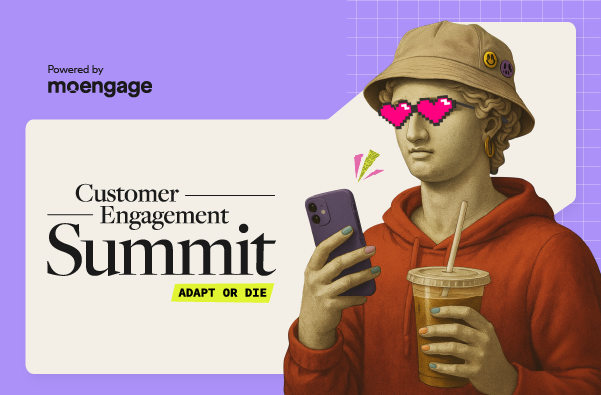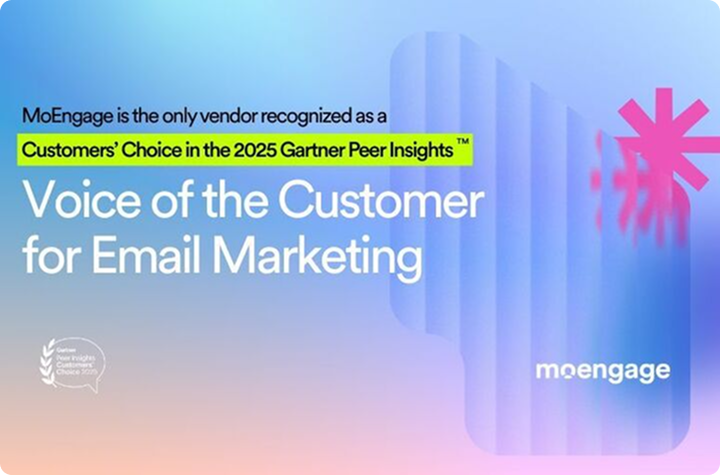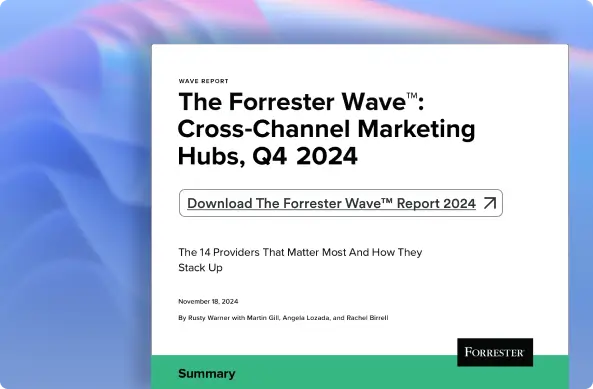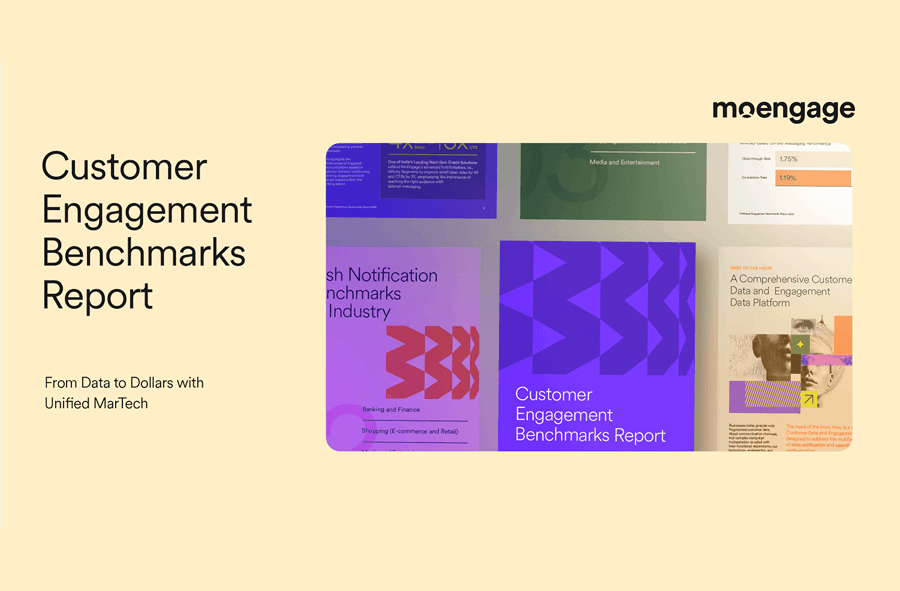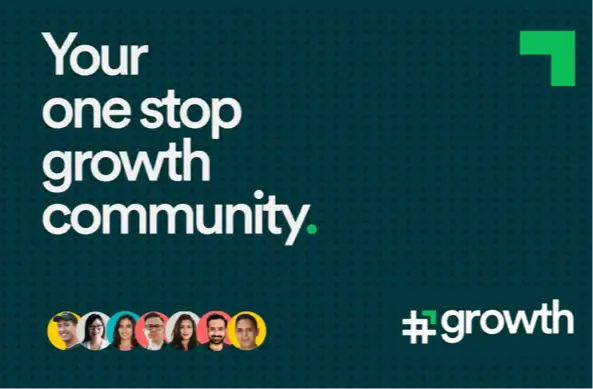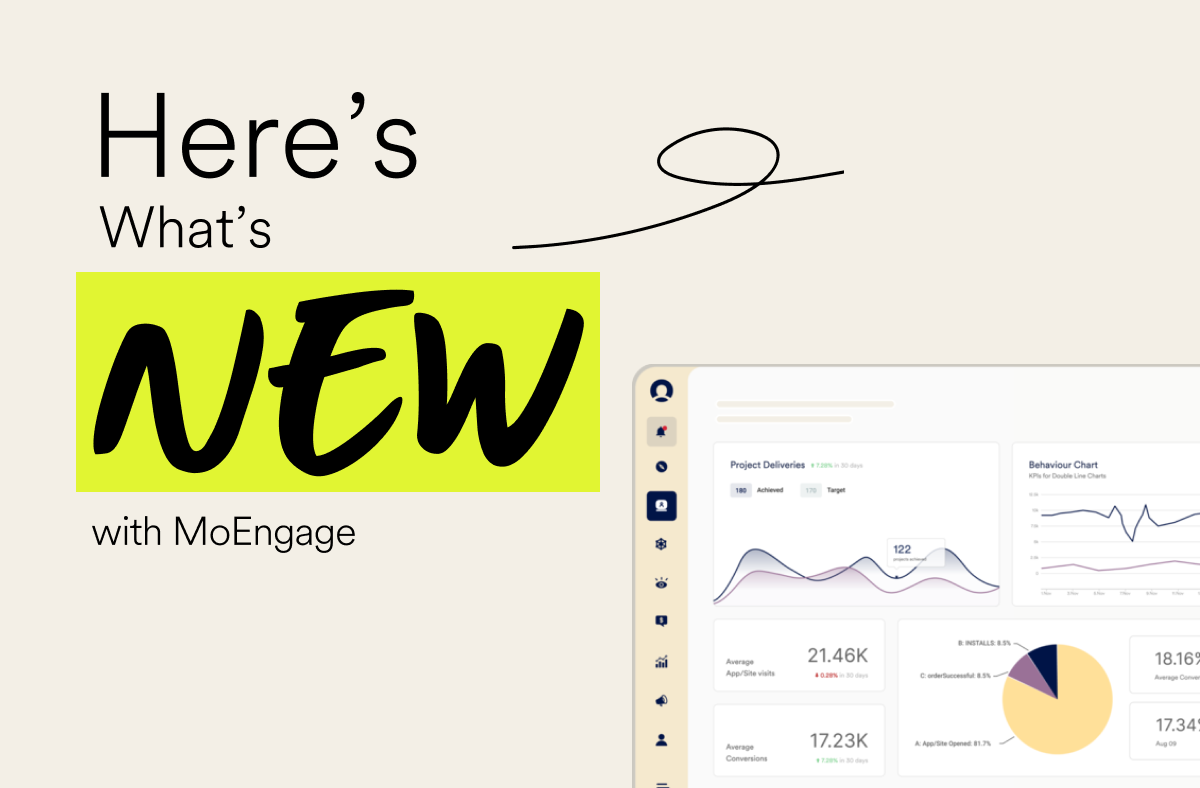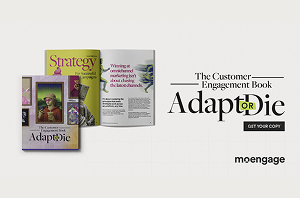Omnichannel B2C Enterprise Marketing: How to Engage Customers at Scale
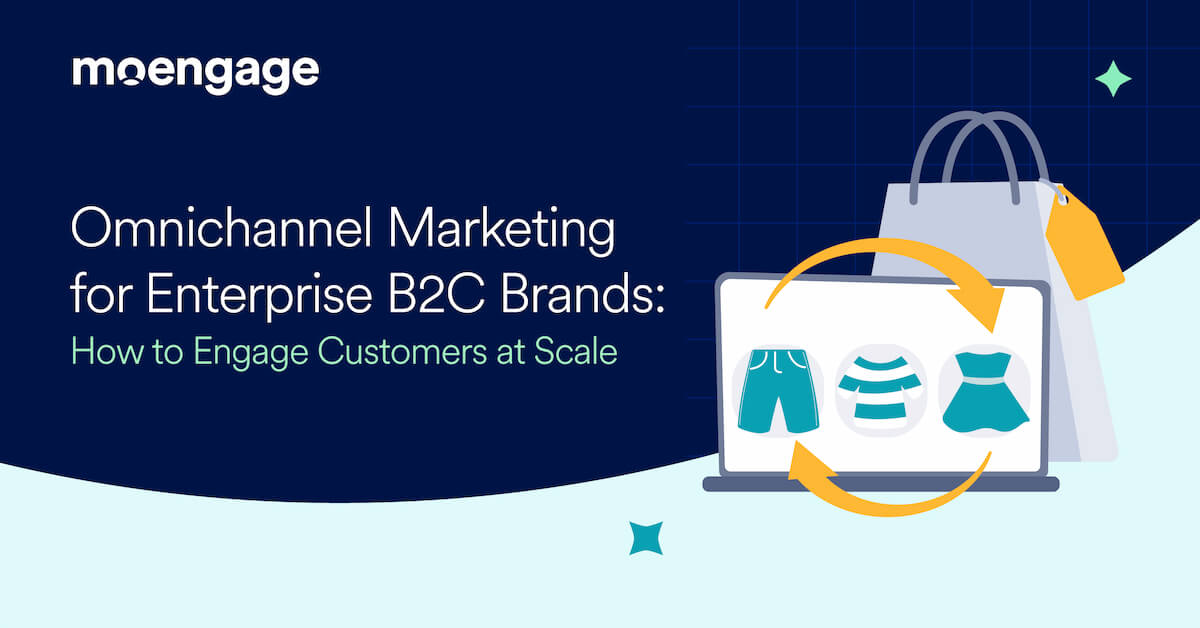
Reading Time: 9 minutes
Omnichannel B2C enterprise marketing is no easy feat. The more customers you have, the more channels and variables come into play, making it extremely challenging to effectively execute an omnichannel strategy that meets each customer’s unique needs.
According to our State of Cross-Channel Marketing 2024 report, most B2C marketers use at least five marketing channels to engage their customers. As you can imagine, this can become difficult to manage, especially as you grow. Fortunately, there are ways to optimize your omnichannel marketing strategy, even when scaling for enterprise-level B2C brands.
In this article, we help you implement and maintain an enterprise-level omnichannel marketing strategy by covering what it is, why it’s important, and how to do it effectively.
Let’s start by diving into what omnichannel marketing means to enterprise B2C companies.
What Does Omnichannel B2C Enterprise Marketing Entail?
Omnichannel B2C marketing is the process of leveraging a cross-channel marketing approach to improve customer engagement, drive brand loyalty, and increase conversions and revenue. It means creating a cohesive marketing strategy that seamlessly intertwines multiple communication channels for end-users.
Many marketers confuse omnichannel with multichannel, but it’s far more than that. Multichannel simply refers to using multiple marketing channels (including online and offline), but each of these channels operates in isolation. With omnichannel marketing, you’re still leveraging multiple channels of communication, but you’re treating them as a single, cohesive, unified experience for your customers.
This provides direct benefits for your customers, including intuitive product and content recommendations and a seamless user experience across channels. But it also provides a lot of benefits to your organization, including more comprehensive data, deeper customer insights, and increased brand loyalty and engagement.
Why Take an Omnichannel Approach to B2C Customer Engagement?
An omnichannel marketing approach is all about being more effective at achieving your bottom-line goals: improving engagement, retention, conversions, and revenue.
When done correctly, it allows you to create a cohesive customer experience across all channels (whether digital or physical), increasing stickiness and retention.
Below, we cover some of the top reasons enterprise B2C organizations need to leverage an omnichannel marketing strategy to satisfy modern consumers.
- Meet customers anywhere on their journey: An omnichannel view lets you connect with customers anywhere on their journey, increasing your ability to engage and retain them.
- Create seamless customer experiences across all touchpoints: Ensure experiences are familiar across all channels to mitigate friction and improve engagement.
- Orchestrate the customer journey from start to finish: Curate smooth, interactive customer journeys that keep customers engaged and motivate them to buy.
- Collect comprehensive customer data from all channels: Unified omnichannel data provides teams with deeper customer insights that lead to more refined decision-making.
- Optimize engagement by using preferred channels: Communicating with customers via their preferred channels at optimal times can drastically increase engagement and retention.
Now, let’s look at some of the top challenges enterprise B2C companies face when trying to maximize customer engagement. After that, we cover top omnichannel marketing best practices so you can engage customers reliably at scale.
9 Consumer Engagement Challenges in Enterprise B2C
As discussed earlier, keeping customers engaged is challenging, especially when you’re juggling that at a large scale. Because an omnichannel marketing strategy is like a jigsaw puzzle with countless pieces, staying flexible and adaptable is key.
To help you tackle these obstacles head-on, here, we’ll cover the top nine challenges enterprise B2C brands face when implementing and maintaining an omnichannel engagement strategy. We’ll also provide effective strategies and solutions to these problems in the next section.
- Scaling workflow and campaign management: An enterprise-level omnichannel strategy is extremely challenging to effectively scale as you grow your customer base and audience.
- Delivering personalized customer experiences at scale: The more customers you have, the harder it is to deliver truly personalized omnichannel marketing campaigns and customer experiences.
- Creating engaging customer experiences that your customers relate to: As your customer list expands, delivering personalized experiences becomes more complex. Segmentation and targeting get more difficult, and so does transforming data into personalized content and experiences that resonate with each individual.
- Provide contextual-relevant recommendations in real-time: Without being able to leverage real-time customer activity and behavior to signal buyer intent, it’s challenging to serve relevant recommendations at the right time.
- Inefficient processes and workflow management: Many companies struggle to maximize the output, productivity, and efficiency of their omnichannel strategy, especially as it grows.
- Anticipating (and delivering) what customers want: If you’re always reacting to customer feedback, your omnichannel marketing will always lag behind your customer’s needs, leaving you in a state of constant catch-up.
- Optimizing marketing campaigns for greatest impact: Without knowing what is and isn’t working (and why), it’s impossible to make meaningful, substantial improvements that increase engagement.
- Incomplete or inaccurate data: Without accurate, complete, reliable data it’s impossible to make informed decisions that have a meaningful impact and mitigate errors in decision-making.
- Maintaining enterprise-grade security and compliance: Platform security, data privacy, and compliance requirements scale as both your customer base and organization grow, making it challenging to meet all requirements.
In the next section, we look at corresponding strategies that you can use to address these challenges.
Omnichannel Enterprise Marketing Strategy: How to Engage Customers at Scale
Omnichannel marketing is all about providing customers with a holistic experience, no matter how they interact with your company. To do that effectively, teams need to make sure the transition from physical to digital is seamless, as well as the transition between digital channels themselves.
Ultimately, your strategy should help bridge the gap between online marketing and offline interactions which will require the help of an omnichannel marketing platform like MoEngage to execute this task effectively.
Here are some ideas to get ahead with omnichannel marketing (and directly address the challenges in the previous section).
1. Amplify growth with marketing automation
Growing pains are a genuine challenge for B2C businesses that excel in attracting customers. Automating as many processes and tasks as possible can really make a difference, helping you keep up with the pace as your business grows to accommodate more customers.
However, before diving into automation, it’s crucial to have a robust system in place. This system should be something you can trust to efficiently manage and optimize your omnichannel marketing campaigns, especially as you expand.
The right solution will help you establish a solid omnichannel strategy as your foundation, and then automate marketing tasks to improve efficiency and productivity. And, most importantly, this means you can scale alongside your growth without compromising on the quality of your customer experience and marketing campaigns.
The Solution:
MoEngage empowers you to create automated marketing workflows quickly so you can deploy omnichannel campaigns as needed. Smart Triggers that leverage past customer activity increase conversions by 4X by delivering contextually relevant content and product recommendations, leveraging the right channel at the right time to maximize engagement.
2. Segment customers and analyze individual customer behavior
When you only have 100 customers, it’s a lot easier to understand their unique needs on a one-to-one basis. But as you scale into the thousands (and millions) this becomes far more complex.
The trick to omnichannel marketing is segmenting customers into buyer personas based on common patterns and buying behaviors your customers exhibit. You can then use these buyer personas to inform what content, channel, and timing you use for each of your targeted marketing campaigns.
Then drill deeper into individual customer activity and behavior to offer hyper-personalized, 1-to-1 experiences that radically increase engagement and brand loyalty.
The Solution:
MoEngage allows you to use insights-led engagement to create focused customer segments so you can target customers using hyper-personalized omnichannel marketing campaigns. This empowers marketing teams to deliver large-scale personalized experiences that today’s modern consumers expect.
3. Hyper-personalize your omnichannel marketing campaigns
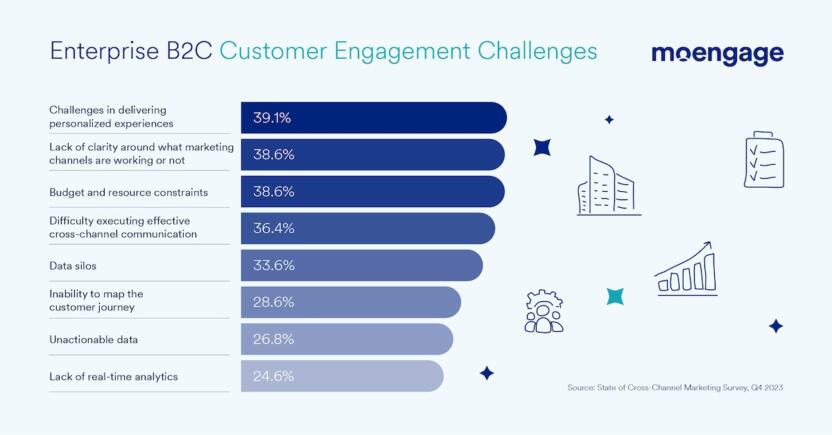
It’s not just enough to offer omnichannel experiences; these experiences also need to be highly personalized to connect with your audience and drive engagement.
According to a recent survey of enterprise B2C brands, we found that 39.1% of respondents expressed challenges in delivering personalized experiences. After all, developing content when you have a variety of buyer personas gets significantly more difficult.
Delivering truly personalized experiences is a tall order, but it’s essential for making every customer feel uniquely valued. To meet expectations, create hyper-personalized, uniquely tailored experiences for customers that improve traction and lead to brand loyalty.
The Solution:
MoEngage focuses on delivering hyper-personalized customer experiences at scale for enterprise companies, helping you retain and convert customers more effectively. We transform the game by automating the mundane, freeing up teams to focus on crafting truly unique experiences and campaigns. This means personalization isn’t just a dream for enterprise companies—it’s achievable, even at scale. Say goodbye to one-size-fits-all and hello to tailor-made interactions that resonate with each customer.
4. Capitalize on real-time engagement opportunities
Without an apt solution, it’s incredibly burdensome to effectively execute (let alone capitalize on) real-time engagement with large customer volumes, which is why 24.6% of our enterprise cross-channel survey respondents said they suffer from a lack of real-time analytics.
When done properly, real-time engagement allows you to leverage omnichannel communication at the optimal time, based on an action or behavior your customer has just taken. Serving real-time product recommendations and communication that are contextually and temporally relevant increases engagement and leads to more conversions.
The Solution:
MoEngage’s enterprise customer engagement platform scales to meet enterprise B2C business needs by leveraging AI-driven insights, marketing automation, and customer journey orchestration.
Our system is built to engage millions of customers in real time, no matter how many customers you have. And we’ve got the numbers to back it up; powering customer experiences for more than a billion consumers each month. With the capacity to deliver more than 20 million messages in a minute for a single campaign, there’s no omnichannel marketing strategy we can’t handle.
5. Leverage AI-driven optimization
When you’re dealing with a high volume of customers, you need to be able to act quickly and make the most optimal improvements. Additional channels mean additional operational requirements, making it challenging to continue to offer the same level of care and service.
Don’t just make an educated guess on what improvements to make. Use AI-driven insights to identify your biggest weaknesses so you can optimize your omnichannel marketing campaign to squeeze the most value you can out of each customer interaction.
The Solution:
AI-driven optimization empowers your team to maximize the value of your omnichannel offerings and marketing campaigns, without overburdening your engineering team. Adapt on the fly with deep insights and make faster, smarter decisions based on AI-powered recommendations.
6. Enhance performance with predictive analytics
Without being able to anticipate what your customers want, it’s extremely difficult to serve them relevant, personalized marketing that uses their channel of choice. At least not on your first attempt.
With predictive analytics, you don’t just have to react to what customers want; instead, anticipate their needs and proactively fill them. Powering your customer engagement strategy with predictive analytics and AI-driven segmentation allows you to optimize the content, timing, and channel of your messaging to deliver hyper-personalized omnichannel marketing that connects with your customers.
The Solution:
MoEngage’s predictive analytics help you anticipate churn more accurately so you can deliver targeted campaigns that keep customers on track to buy. Re-engage customers via SMS, email, or push based on their preferred channels to maximize traction, retention, and revenue.
7. A/B test omnichannel campaign performance
Experiment with your omnichannel campaigns to see what works best and what areas can be improved for the greatest impact. A/B testing takes the guesswork out of your omnichannel strategy, producing insights into customer engagement and loyalty across email, in-app, push notifications, and any other channels you’re using.
The Solution:
MoEngage doesn’t just let you A/B test your omnichannel marketing campaigns — it also provides deep insights that let you compare performance and optimize for the greatest impact. This is incredibly important for B2C enterprise marketers who are working with a variety of buyer personas.
8. Ensuring data quality and accuracy
A top-notch omnichannel strategy hinges on solid customer data—it’s the secret sauce that lets teams fine-tune the where, when, and what of their messaging. But, if the data isn’t spot-on, the whole strategy can crumble.
Even small slip-ups in customer segmentation can ripple through, influencing future decisions about buyer personas, content suggestions, and even when and where to send those messages. It all starts with getting the data right.
The Solution:
MoEngage knows that your data is the cornerstone of your strategy. That’s why we leverage AI-powered insights that help you maximize the value of your omnichannel journeys and marketing campaigns.
9. Exceed security & data privacy standards
Meeting data privacy and regulatory regulations is a legal requirement. Failing to meet applicable standards can result in hefty fines and penalties. But security and data privacy standards are increasingly difficult to manage as you scale.
Each customer you onboard and retain requires both initial and ongoing due diligence. The more information and data you collect for your records, the more data security requirements you have to meet. And as your company grows and expands to new jurisdictions, there are additional data privacy and compliance requirements to consider.
The Solution:
MoEngage takes security and compliance controls seriously, aligning with GDPR and CCPA requirements. We use Single Sign-On (SSO), Two Factor Authentication, and IP Whitelisting to help you manage data access with confidence. We haven’t just built security into our product with controls and processes that safeguard your data, we’ve built it into your culture, ensuring it’s a state of mind within our organization.
Perfect Your Omnichannel B2C Enterprise Marketing with MoEngage
At the end of the day, navigating omnichannel marketing can feel like a whole new ballgame. It introduces a layer of complexity to operations and management, but the payoff is huge. However, for big brands, these challenges are magnified, making a seamless omnichannel strategy harder to execute and sustain.
Enter MoEngage’s customer engagement platform. MoEngage provides deep data insights that look at the complete customer experience. This allows you to segment customers and create buyer personas that are dialed in to your customers’ needs. Armed with this knowledge, you can craft customized omnichannel experiences that lead to higher engagement, loyalty, and, ultimately, revenue.
Ready to elevate your enterprise omnichannel game? Reach out to us for a demo, and discover how MoEngage can empower your team to develop and fine-tune a marketing strategy that scales with your business ambitions.


